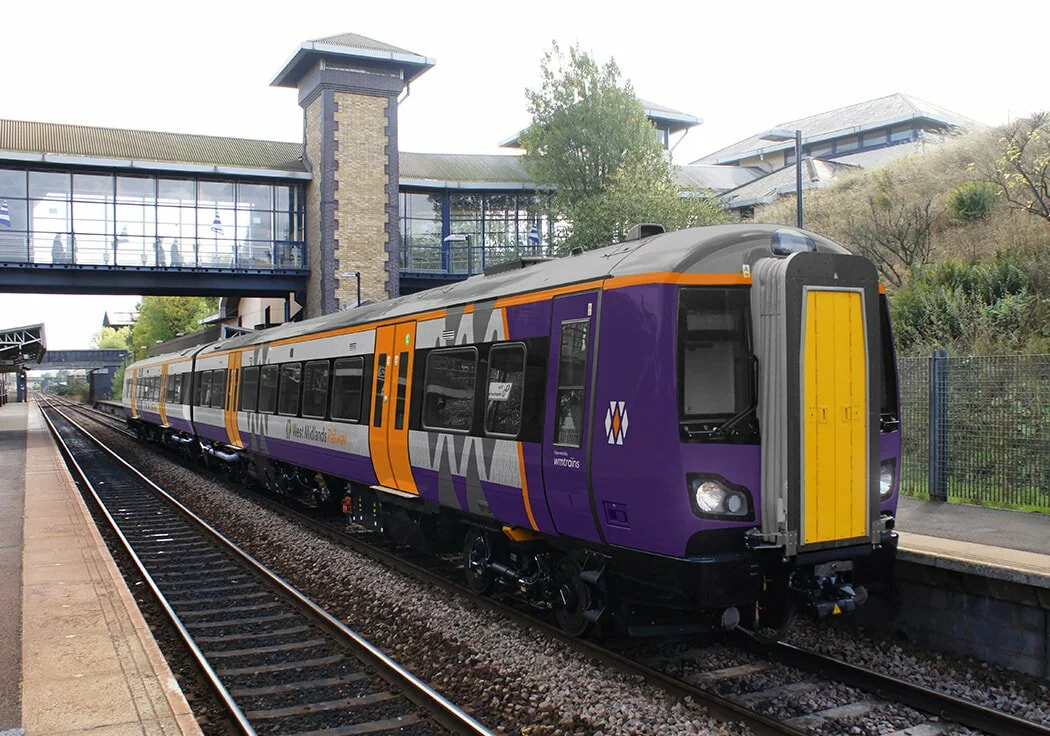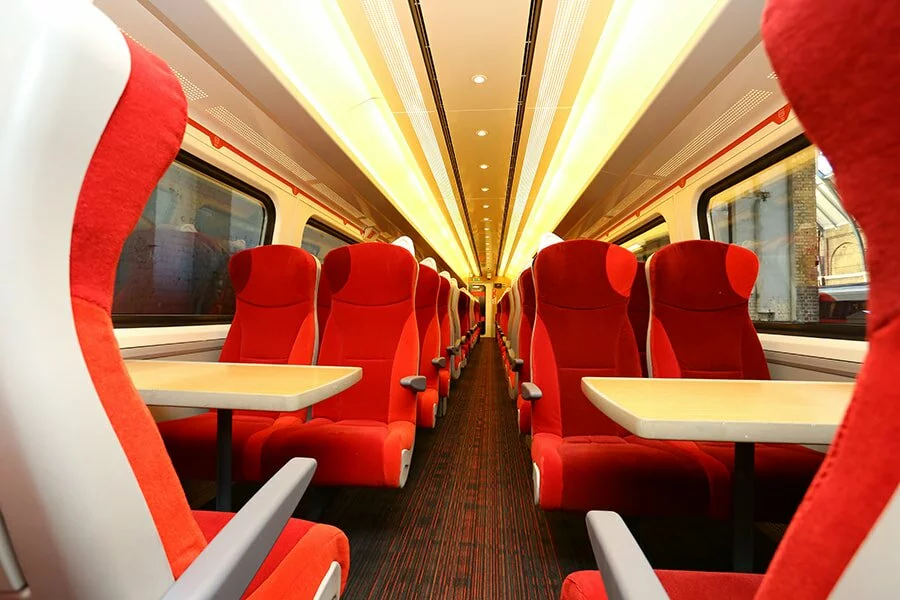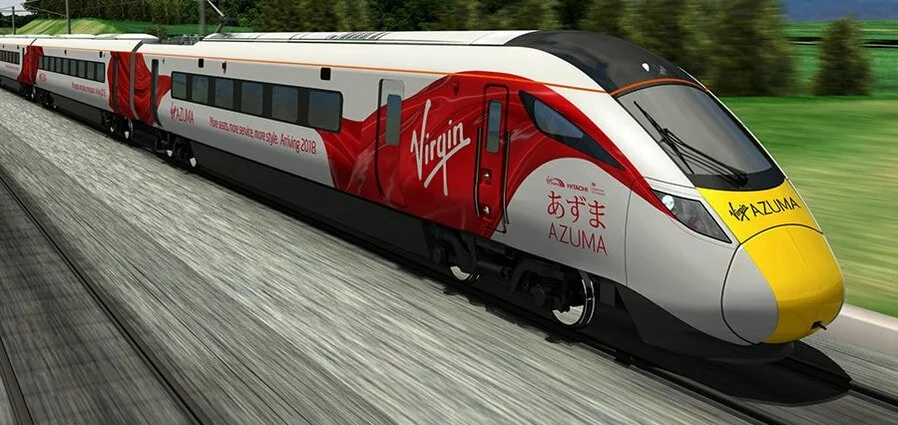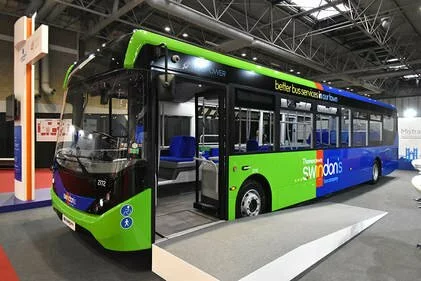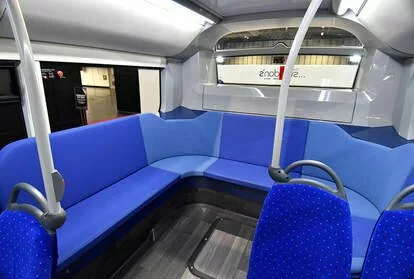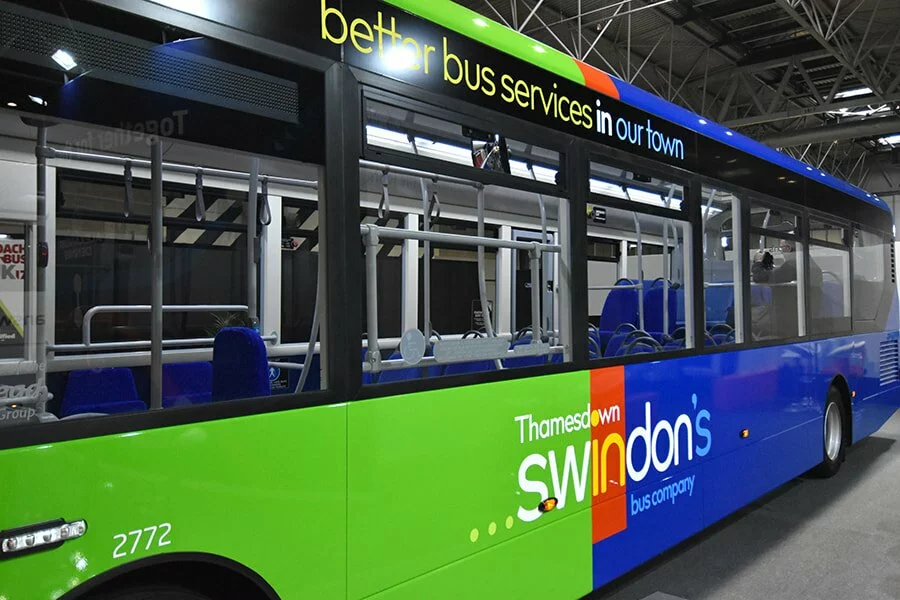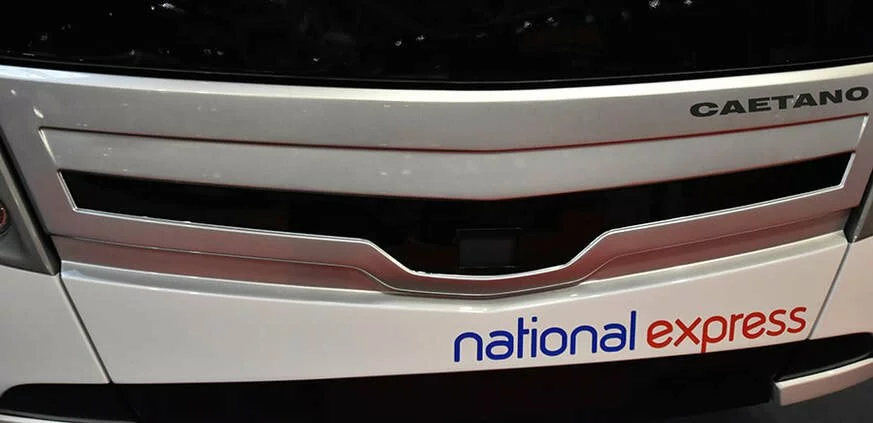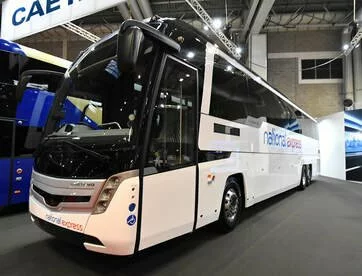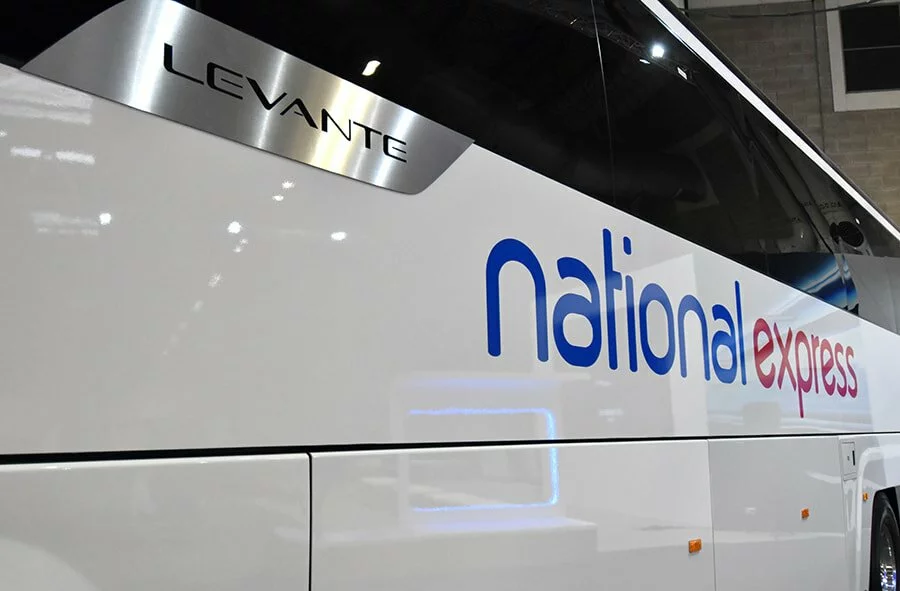- Home Page
- Fleet News Ramblings
- SKM News Views & Blog
- Behind The Picture
- Contact us
Bus operators must manage route branded vehicles effectively30/10/2017
I have long considered that a bus is a great mobile advertisement. In the 1970s I was aghast when the bus company I worked for took advertisers money and plastered a number of its vehicles with car adverts. They might have well put a ‘Buy a car and don’t travel by bus message on the back of the Fleetlines.
It was the 1980s before many operators realised that they could use their own buses to promote their own services. Classic. Extol the virtues of travelling by bus to those motorists who were caught up in traffic jams. Then in the last 20 years or so there has been an explosion in plastering route branding on vehicles. A great move - as long as it doesn’t obscure the windows! There is just one niggle I have, if vehicles carry route branding then they should be used on the route that the branding is ‘selling’. It can be done. Reading Buses, Nottingham Transport and Trent Barton are experts on the correct management of route branded vehicles. If operators cannot allocate branded vehicles to routes then they should ditch the route branding all together. Only last Saturday I came across a vehicle which was even in a special route livery operating off route - some 30 miles from the nearest point of the route that it should be used on. Then later in the day another route branded vehicle 30 miles off route. Well it would have been 30 miles off route but the service number on the vehicle no longer exists - it was replaced some four weeks ago, although the renumbered service covers the same calling points. Come on bus operators, if you have vehicles with route branding on make sure it is up to date and that the vehicles are allocated to the right route. Branding of vehicles is not cheap so why spend the money if you have depot controllers who cannot manage vehicle allocations effectively! West Midlands Trains announced London Northwestern livery and brand27/10/2017 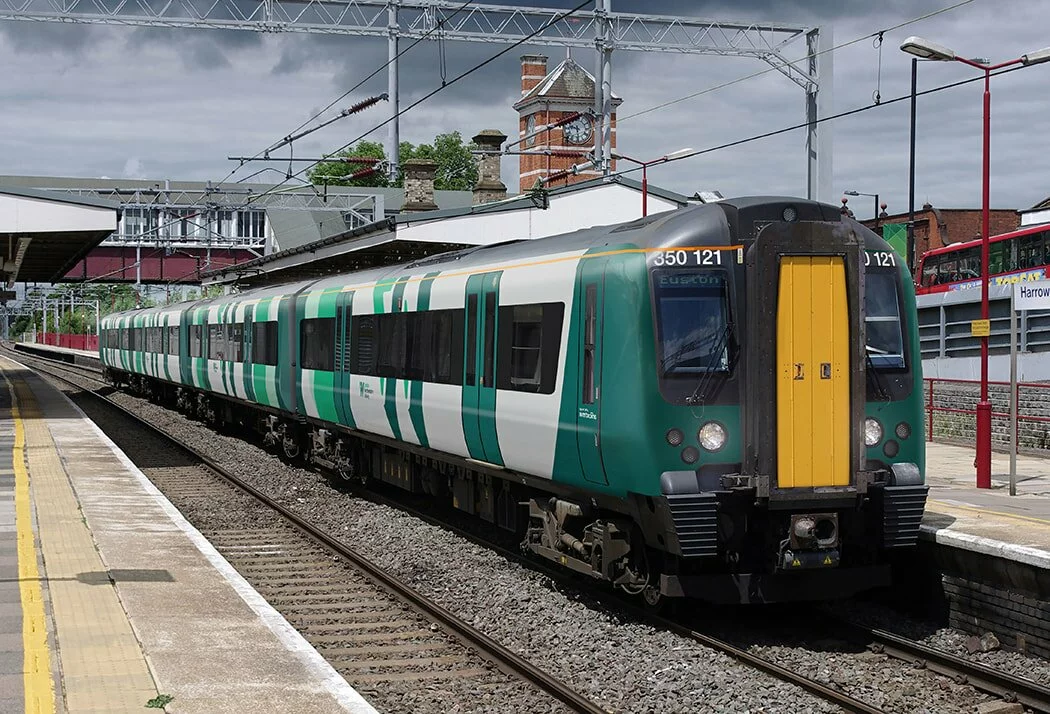 The green London Northwestern livery The green London Northwestern livery
Abellio, JR East and Mitsui have today announced that when its West Midlands Trains franchise takes over London Midland service in December it will introduce a London Northwestern brand. The new franchise starts on 10th December.
The company says that the London Northwestern is “designed to reflect the increasing economic power and growth of the north western corridor, whilst placing the west midlands at its heart. “The new brand,” it says, “presents a contemporary take on the original heritage of the line, representing a credible alternative to existing operators, with a company parentage that includes international railway operators of Holland and Japan”. The new London Northwestern brand will be used on the main WCML services. The remaining London Midland services, operating in and around Birmingham, will be rebranded as West Midlands Railway. The West Midlands Railway brand name was announced last year, after being created by the West Midlands Combined Authority to better serve its local customer base. The introduction of two new, separate, railway brands is seen as an enabler for the potential devolution of the west midlands routes to the West Midlands Combined Authority. The London Northwestern operation would remain under the remit of the Department for Transport as far of future refranchising is concerned. Dominic Booth, Managing Director of Abellio UK said: “We are delighted to bring the London Northwestern brand to a whole new generation of passengers, and it seems apt during a time of record investment into the railways. “This is all part of the £1bn of improvements we are delivering to the network over the coming years.” Railway Round-Up 25th October 201725/10/2017
Welcome tour an ad-hoc review of what's happening on the railways, produced from information we receive. We hope that you will find the information of interest.
Guards on trains dispute continues Rail union RMT has announced the next round of strikes in its dispute with train operators as it seeks assurances over the future of guards on trains. Five train operators are involved with strikes announced for Greater Anglia, Southern, South Western Railway on November 8th and 9th with a 24 hour stoppage on Merseyrail and Northern on November 8th. Travel barriers removed News reaches us that Virgin Trains, those of the East Coast operation, have removed the automatic ticket gates at Grantham, Newark and Retford. The company has recently appointed a number of Revenue Protection Inspectors whose roles include ticket checks on trains and also at stations. On board showers mar GWR IEP launch Great Western Railway, a First Group operation, launched its IEP trains into service on October 16th. The launch was marred with a later departure from Bristol to London Paddington, which didn’t leave until 0626. At one stage GWR had even considered substituting the IEP for an HST. IEPs 800005 and 800006 worked the train but problems with the air conditioning system saw water cascade from roof onto customers. There was also problems with the electric traction after Reading and the Bi-mode train was forced revert to diesel power. A second train in service on the same day was formed 800008 and 800009. Train makers Hitachi apologised for the problems and GWR was forced to take the sets out of service for a few days while software mods were made. New trains for the West Midlands New diesel and electric trains have been ordered for the new West Midlands franchise. Bombardier will supply 36 three car 90mph electric units for inner suburban services and 45 five car 110mph electric units for outer suburban longer distance routes. CAF will build 12 two car and 14 four car diesel multiple units. Gospel Oak-Barking set for further closure The route between Gospel Oak and Barking will be completely closed between November 18th and January 14th next year as Network Rail sets to work to complete the electrification of the route which it failed to complete earlier this year. New electric multiple units are due to be introduced onto the line in the first half of 2018. Deltics up for sale Two of the six Deltics currently preserved have been put up for sale. Martin Walker is selling D9016 Gordon Highlander and the class pioneer D9000/55022 Royal Scots Grey. D9016 is at Washwood Heath where it requires body overhaul whilst D9000, currently in the guise of 55018 Ballymoss, is at the North Yorkshire Moors Railway but requires engine repairs following failure earlier this year. D9000/55022 is mainline registered. Nuneaton boost for Coventry rail service13/10/2017
It is encouraging to read that the new West Midlands rail franchise intends to increase the number of train services each day on the Coventry-Nuneaton line.
The route, which regained its passenger train service in May 1997 also saw the re-opening of Bedworth station the following year. Working with a local group and Regional Railways I was involved in chartering special trains to mark both events. Initially services were operated by first generation diesel multiple units but latterly they have been worked by a single car Class 153 train. Last year new stations were opened at Ricoh Arena and Bermuda Park, but capacity remained an issue given the use of the single coach train. Now with plans for an additional bay platform at Coventry and the transfer of two car Class 172 trains from London Overground there are plans to operate the longer trains from the end of next year and then increase the service to two trains an hour - and more frequently on Saturdays. And all this on a route that lost its passenger service in the late 1960s! Government must ensure electric power for all13/10/2017
The Government’s announcement in July that diesel and electric cars would be phased out and only electric cars would be sold from 2040 rang alarm bells.
First of all manufacturers need to improve the charging time of electric vehicles and also the range that a vehicle can do. Certainly at present a long distance journey is now possible without recharging and recharging points are somewhat thin on the ground. Still manufacturers and local authorities have 23 years to get their act together. But I predict it will go to the wire. Fuel stations will disappear. Hopefully to be replaced by a mass of fast charge points. But what of buses, coaches and lorries. If buses and coaches are to fall within the scope of electric vehicles only from 2040 then it’s a case of operators having to upgrade fleets again - many having just gone through a fleet upgrade process to comply with DDA requirements. But shouldn’t current electric power issue ring alarm bells. We hear of several operators - one in the LEYTR area - converting diesel/electric hybrid vehicles to straight diesel. The batteries have a short life-span compared with the expected vehicle life and are expensive to replace. There have also been a number of fires involving hybrid-powered buses. We have 23 years to get the full electric infrastructure in place. I suspect come 2040 it will be like Broadband, good in places but non-existent in others. Time will tell… But whilst the Department of the Environment was proclaiming the end to use of fossil fuels for cars the Department for Transport was announcing the scrapping of further rail electrification. Whilst on the Midland Main Line the wires will go north to Kettering and Corby, the route north of Kettering will need to rely on the unproven in the UK Bi-Mode option. There will be gaps in the Great Western electrification plan for Wales and any thought of TransPennine electrification in the future is now nothing more than a fairy story. These Bi-Mode trains are heavier than existing trains and slower in diesel mode with limited range so passengers will potentially see journey times extended and fossil fuel emissions continue. It also seems that the Government has no plans for phasing out diesel trains. On 12th September Andy McDonald MP (Middlesbrough) asked the Secretary of State for Transport, with reference to the announcement of 26 July 2017 on the end of sales of all new conventional petrol and diesel cars and vans by 2040, what his policy is on the use of diesel trains after that date. Transport Minister Paul Maynard provided a written answer on 9th October 2017 “We are encouraging the railway industry to improve air quality by proposing solutions that reduce emissions from trains and also to develop innovative solutions around future fuel technologies such as hydrogen and battery power. In the nearer term, there are currently a number of new bi-mode trains being delivered or on order. The rail industry expects rolling stock to typically have an expected life in the range of 30 to 35 years. There is no policy at present on the use of diesel trains post 2040”. Railway Round-Up October 11th 201711/10/2017
Welcome to an ad-hoc review of what's happening on the railways, produced from information we receive. We hope that you will find the information of interest.
More Saturday trains for Virgin Trains on the East Coast
Virgin Trains have announced that the biggest boost to Saturday services in more than 25 years will take place in December. 24 additional services will be provided, an increase of 45% compared to March 2015 when Virgin took over operations on the route. The increase represents the biggest increase in Saturday services since the launch of electric trains in the 1990s. The new timetable is part of a £140m investment in the route by Virgin Trains. It has been hailed as changing weekend travel for thousands of passengers. More frequent services to and from a number of stations including Leeds, York and Newark Northgate means that passengers will be able to enjoy a similar frequency of services to those enjoyed on weekdays. Virgin Trains told Steven Knight Media that it is able to provide the extra services using the surplus capacity in its existing InterCity 125 and 225 train fleets. From December 151 services will operate every Saturday, only six fewer than will run on weekdays, The extra services will provide 12,574 additional seats on the east coast route each Saturday, with around 6,000 additional tickets will being sold for under £30 every week to destinations including York, Doncaster, Newark, Peterborough and Grantham. For example, customers travelling between London and Newark will be able to find tickets from as low as £12.50, while fares between York and London start at £16. There are also some improvements to Weekday and Sunday timetables. York customers wanting to reach the capital for a 7am start on weekdays will benefit from a 4.40am service, giving them an extra 1hr12m in London than was possible under the previous timetable. This follows calls from the business community for a service that enables them to get to the capital for early-morning meetings. The new timetable will accelerate journeys from Leeds and Wakefield to London by seven minutes on Saturdays making the trip from Wakefield an average of two hours long. A Sunday evening service from London to Doncaster which leaves at 10.05pm will be extended to York, allowing those wishing to make the most of a weekend in London to catch a later service home. David Horne, Virgin Trains Managing Director on the east coast route, said he was confident the timetable changes would attract more people to rail: "Our new timetable brings new services that we know our customers want as well as thousands of low cost seats. Six days of the week, customers will be able to enjoy the most frequent service we’ve ever seen on the east coast mainline and we’re not stopping there. Our £140m investment is about reducing journey times, increasing the frequency of services, and giving customers a great experience on-board with refurbished trains and refreshed on-board catering - for less. We’re confident that these investments will make it easier, cheaper and quicker than many think to travel by train." Virgin Trains introduced 45 additional services per week between Edinburgh and London last year as it completed a programme to overhaul the interiors of its entire train fleet. The investment led to the number of passengers travelling between the UK and Scottish capitals growing by 8% last year and helped Virgin Trains win its highest-ever share of the air/rail market on the route. 
Great Western to launch new Pullman Menu
Great Western Railway (GWR) will unveil a new menu on offer to customers using its Pullman services from later this month. The operator has previously enjoyed a successful partnership with Chef and Restaurateur Mitch Tonks. During this time, food on GWR Pullman services was enhanced with more locally sourced ingredients to ensure customers enjoyed high-class meals when travelling at 125mph. Mitch said: “It has been a great experience working with the team at GWR and I am delighted that, together, we have really progressed the Pullman offer by sourcing local ingredients from farms and fisheries on the GWR routes so that guests look out over the sea and land from where their meal was from. “One of the highlights of our five-year relationship has been working with the teams on the Pullman who are highly skilled and passionate about the service they work and I am happy to hand over the food development to them for the future.” GWR Sales and Marketing Director Phil Delaney said: “Mitch has been a tireless advocate of the Pullman over the years, and it wouldn’t be where it is today without his knowledge, guidance and passion. It is a passion that is felt by every member of Pullman team and I know they are excited about taking our unique Pullman product forward.” The new menu offer on-board GWR Pullman services will be introduced in the coming weeks as the operator also looks forward to introducing new Intercity Express Trains to the network which will further enhance the on-board experience
Great Western adventure for The Famous Five
Look out for Great Western’s latest advertising campaign. A new advert features The Famous Five taking an adventure on the Great Western network. The campaign is a prelude to the introduction of the new IEP trains on the route, which is expected to be next week.
Virgin plans IEP service from December 2018
Virgin Trains has confirmed that it expects to start IEP services on its’ East Coast route from December next year. The company expects to have four trains in its fleet from November 2018 with passenger services, initially using two trains, starting the following month. It has yet to make a decision on which route the trains will be used first. In preparation for driver training the first of four Azuma driving simulators has been commissioned at London King’s Cross. The others will be at Leeds, Newcastle and Edinburgh.
Fares trial runs late
Despite promising a start date of May 2017 in the joint Rail Delivery Group (RDG)/Department for Transport (DfT) announcement in February this year the three fares trials have not yet started. Plans to simplify Sheffield-London tickets by removing the rarely bought ‘Any Permitted’ fare as well as introducing single leg pricing on London-Scotland journeys remains locked in red tape with the DfT. Discussions continue between the two Virgin Trains franchise operators. Meanwhile the RDG says that the trial to replace some long distance through fares with the cheaper fares obtained through ‘split ticketing’ could start early next year. 442s move to South Western Railway Further Class 442 ‘Wessex Electric’ units have moved to South Western Railway, who are taking 17. The trains, stored at Potter Group in Ely following handback off lease by Gatwick Express, will be used on London-Portsmouth services from next year. They were new to Network SouthEast in 1998. The will be refurbished and fitted with new traction equipment. Thameslink 2000 gets closer… Originally a British Rail/Network SouthEast scheme in the early 1990s and due to launch around the year 2000, through trains from Cambridge and Peterborough to destinations south of the River Thames are due to start at the end of next year. Govia Thameslink, the operator of the Great Northern routes from King’s Cross is planning for trains from Peterborough to operate through to Horsham vis Gatwick Airport whilst those from Cambridge would run to Tattenham Corner or Brighton. Services would run through St Pancras station, rather than into the King’s Cross terminus and also provide through journey opportunities to Farringdon, City Thameslink, Blackfriars, London Bridge and East Croydon. East v West? .....for me West is best (on Virgin Trains)9/10/2017 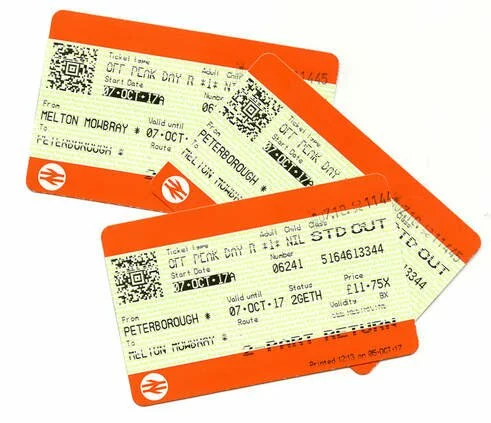
For some time now I have felt that Virgin’s East Coast operation has been lacking.
It’s hard to pinpoint when the change occurred but on many recent journeys from Peterborough (to and from London, York and Newcastle) ticket checks on board were non-existent. Couple that with inconsistent on board service, equipment failures and staff shortages the on board experience has fallen far short of my expectations and far short of what I have experienced in the past. One of my biggest complaints on several occasions is the lack of hot drinks between London and Peterborough in First Class. Apparently we are told, hot drink service will take place after Peterborough - that’s over 70 miles and 45 minutes into the journey. But the service is inconsistent but a station bought coffee will provide a solution. Hot on the heels of being sold a ticket to the wrong station (in Birmingham) recently, I bought tickets last week (in advance) for a return journey to the superb Food Festival in Melton Mowbray. But when the tickets were put into the barriers at Peterborough station on Saturday morning up popped a message that the tickets were not valid at this station. So a Peterborough to Melton Mowbray Off Peak Day Return, valid all day on a Saturday, is according to the automatic ticket gates not valid! There were two members of staff at the barrier line. One of them was assisting other passengers whilst the other seemed to be doing their best to avoid eye contact with a number of passengers who were seeking assistance. When he did acknowledge the passengers he merely indicated it was his colleague they needed to speak to. Contrast that with a recent journey out of London Euston with Virgin West Coast. Welcoming staff, even on the barrier line at the station and tea and coffee being served as the wheels started to roll. 45 minutes out of Euston breakfast had been served, tickets checked and a second service of tea and coffee had taken place. This is the West Coast service standard I remember well and must admit wish could be offered on East Coast. Attention to detail6/10/2017
One area where modern technology is making a mark is in the proofing of online and print material.
In the old days, when documents were typeset proofing was an art. Several people would look over bus timetables and maps to ensure all was correct. In those days errors were rare. Now with computerised design tools and spellcheck it has become too easy to rely on the technology. It is also the case that most proofing is done by the person who keyed in the text. In such instances it is easy to read what was meant to be there. I recall a former editor of mine always saying "the bigger the type the bigger the error" and there is evidence around to suggest he was right. It seems that the new South Western Railway has already fallen foul of the 'attention to detail' rule. Having mis-placed Woking and Clapham Junction on a map it now needs to learn how to spell Salisbury - it certainly isn't Sailsbury as it had on a recent timetable map. Yes, we know all about greenhouses and stones and we put our hands up. Yes, we also have fallen foul of missed proofing errors. We also added some errors to the original version of this blog item! From Bus & Coach UK at the NEC6/10/2017 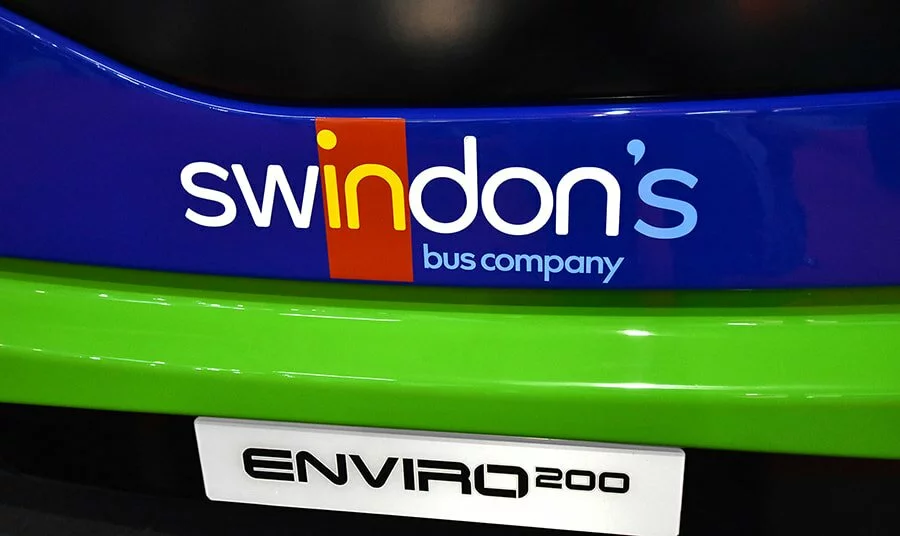
To Birmingham this week for Steven Knight Media where Coach & Bus UK 2017 was held at the NEC. I digress, but is it really over 40 years since the NEC opened! I recall being there on opening day when my employer, the West Midlands PTE, put into service a fleet of dual door Leyland Nationals on the NEC shuttle services and even ran special services from parts of the West Midlands to the NEC for locals to look around the new facility.
Oh how it has grown. And Oh what a long way it is from Birmingham International Station to Hall 17! But once there it was noticeable that for vehicle exhibits it would have been better named a coach show. That said there were a number of ADL Enviro 200s, of both Classic and MMC models there. Certainly for me, the start Enviro 200 was an 11.8 metre MMC model for Go South Coast’s Thamesdown business in Swindon. Following the sale of the municipal operation to Go Ahead the brand image has really benefitted from a complete makeover from Ray Stenning and the team at Best Impressions. Step inside the bus at the show and there is a ‘wow factor’. It is bright and airy and looks different at the rear. Here, the conventional seating arrangement has been consigned to the skip and a lounge area fitted. I am sure that it was Go Ahead’s purchasing power and persuasion that encouraged ADL to come up with the passenger saloon makeover. They are taking 54 vehicles of which Swindon will receive the first 13 with the remaining 41 due early next year for Morebus operation in the Bournemouth and Poole areas. ADL refers to the new seating layout as ‘Social Seating’, but it has also been described as a sofa and a lounge area. The rear seating area also benefits from a the wrap over rear skylight window. Andrew Wickham, Managing Director of Go South Coast said: “We have for some time been pursuing a seating arrangement that provides a more sociable setting for our customers, creating a comfortable space for friends and family” As attractive as the arrangement is, I will leave any further comment until I have seen evidence of how passengers react to, and use, the facility.
So, onto what was a focal point for me at the show. The new Levante III from Caetano. This third incarnation of the Levante is certainly eye catching and at 14.9 metres it looks huge.
The prototype vehicle, on a Volvo B11R chassis, exhibited is finished with branding for National Express, on whose routes it will go into service on operated by Edwards Coaches. It has 59 seats, an increase of three over the previous Levante II model. The coach is finished in what I have seen described as Ice-White livery carries the National Express branding but only the words. Gone are the silver stair rods and this simple change gives the coach a clean look without the branding detracting from the body styling. It will certainly be eye catching as its speeds along the motorway. The falling value of rail compensation5/10/2017
When the Passengers Charter was introduced onto the railways in the 1990s by British Rail it offered standard compensation for passengers. The highest level was where one leg of the journey was delayed by more that 120 minutes, and yes it does happen, the passenger could claim back the total cost of a return ticket and not just the leg of the journey that was delayed.
Now that was in the day when virtually everyone making a return journey bought a return ticket. In recent years train operators have been advising us that the best value may be to buy two single tickets, one for each leg of the journey. But by doing so the train operators have been able to save on paying out compensation. This has been possible for them because the two single tickets are just that, single tickets. You may be making a return journey but in the eyes of the train operator you are making two single journeys, albeit in opposite directions. A full refund will be made in many cases if the train is more than 60 minutes late, but should it be over 120 minutes late then the refund remains the same. Your contract is for a two separate single journeys. |
Steven KnightSteven Knight is a Transport Specialist who has over 40 years experience in the bus and rail industries as well as in specialist transport journalism. He is a member of the Chartered Institute of Journalists. ArchivesJanuary 2021 |
 Create your own unique website with customizable templates.
Create your own unique website with customizable templates.
- Home Page
- Fleet News Ramblings
- SKM News Views & Blog
- Behind The Picture
- Contact us

